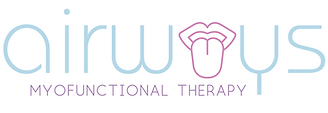Understanding Sleep Apnea: Symptoms, Testing, and the Role of Myofunctional Therapy
- Nov 9, 2023
- 3 min read
Sleep apnea is a common but potentially serious sleep disorder that affects millions of people worldwide. It can have a significant impact on your health and quality of life. In this blog post, we'll explore the symptoms of sleep apnea, how it's tested for, and the promising role of myofunctional therapy in its treatment.

What Is Sleep Apnea?
Sleep apnea is a condition characterized by repeated interruptions in breathing during sleep. These interruptions, known as apneas, can be caused by the relaxation of the throat muscles, leading to a partial or complete blockage of the airway. There are three main types of sleep apnea:
Obstructive Sleep Apnea (OSA): This is the most common form, and it occurs when the throat muscles relax and block the airway.
Central Sleep Apnea: This type is less common and involves a failure of the brain to transmit the proper signals to the muscles responsible for controlling breathing.
Complex Sleep Apnea Syndrome: Also known as treatment-emergent central sleep apnea, this is a combination of both obstructive and central sleep apnea.
Symptoms of Sleep Apnea
Recognizing the symptoms of sleep apnea is crucial for timely diagnosis and treatment. Common symptoms may include:
Loud and persistent snoring: Especially when accompanied by choking or gasping sounds.
Excessive daytime sleepiness: Feeling tired even after a full night's sleep.
Morning headaches: Frequent headaches upon waking.
Difficulty concentrating: Reduced cognitive function and memory problems.
Irritability and mood swings: Changes in mood and behavior.
Frequent urination at night: Nocturia can be a sign of disrupted sleep.
Restless sleep: Tossing and turning during the night.

Testing for Sleep Apnea
If you suspect you or someone you know may have sleep apnea, it's important to undergo testing for a proper diagnosis.
Polysomnography: This is an overnight sleep study conducted at a sleep center. It involves monitoring various body functions, including brain activity, eye movement, muscle activity, heart rate, and more. It helps to identify the type and severity of sleep apnea.
Myofunctional Therapy and Sleep Apnea
Myofunctional therapy is a non-invasive treatment option that targets the muscles of the mouth and throat. It has gained recognition as a complementary approach for managing sleep apnea, particularly in cases of mild to moderate obstructive sleep apnea. Here's how it works:
Strengthening Muscles: Myofunctional therapy focuses on exercises that strengthen the muscles of the mouth and throat. Stronger muscles can help keep the airway open during sleep, reducing the risk of obstructions.
Improving Muscle Control: These exercises can help improve the control and coordination of the tongue and throat muscles, preventing them from collapsing and causing apneas.
Enhancing Breathing Patterns: Myofunctional therapy can also teach individuals how to breathe properly through the nose rather than the mouth, which can be especially beneficial for those with obstructive sleep apnea.
Reducing Symptoms: By addressing the underlying muscle weaknesses and habits that contribute to sleep apnea, myofunctional therapy may lead to a reduction in symptoms and improved sleep quality.
Sleep apnea is a serious sleep disorder that can have far-reaching consequences for your health and well-being. If you suspect you may have sleep apnea or have been diagnosed with it, myofunctional therapy is a promising complementary approach to consider. Working with a trained myofunctional therapist can help strengthen the muscles involved in breathing and potentially improve your sleep quality. However, it's essential to consult with a healthcare professional for a comprehensive evaluation and treatment plan tailored to your specific needs. Don't hesitate to take action for better sleep and a healthier life.



.png)



コメント